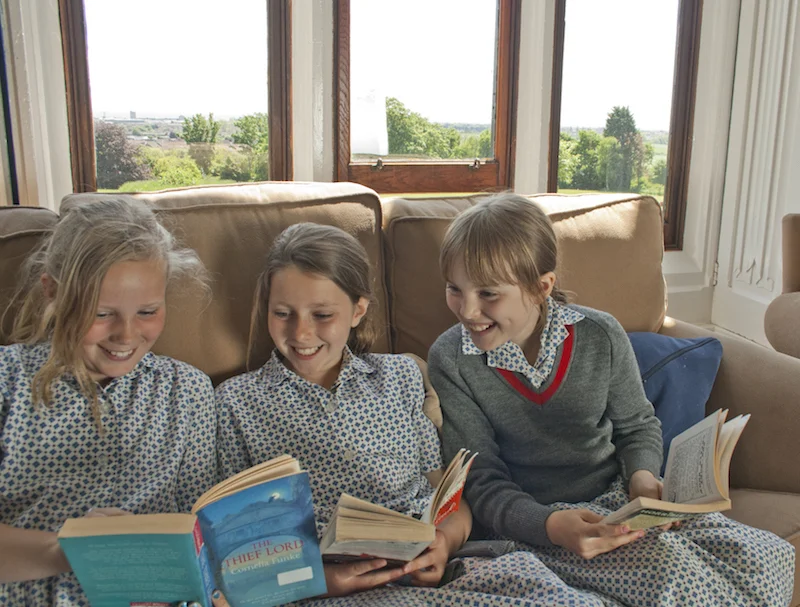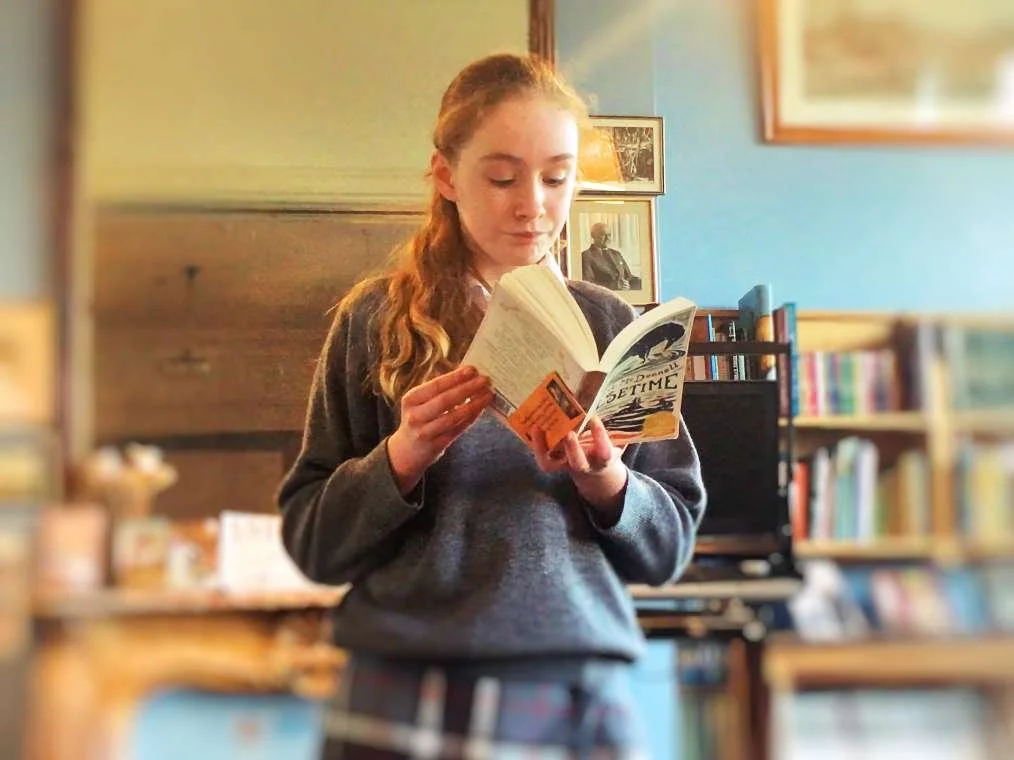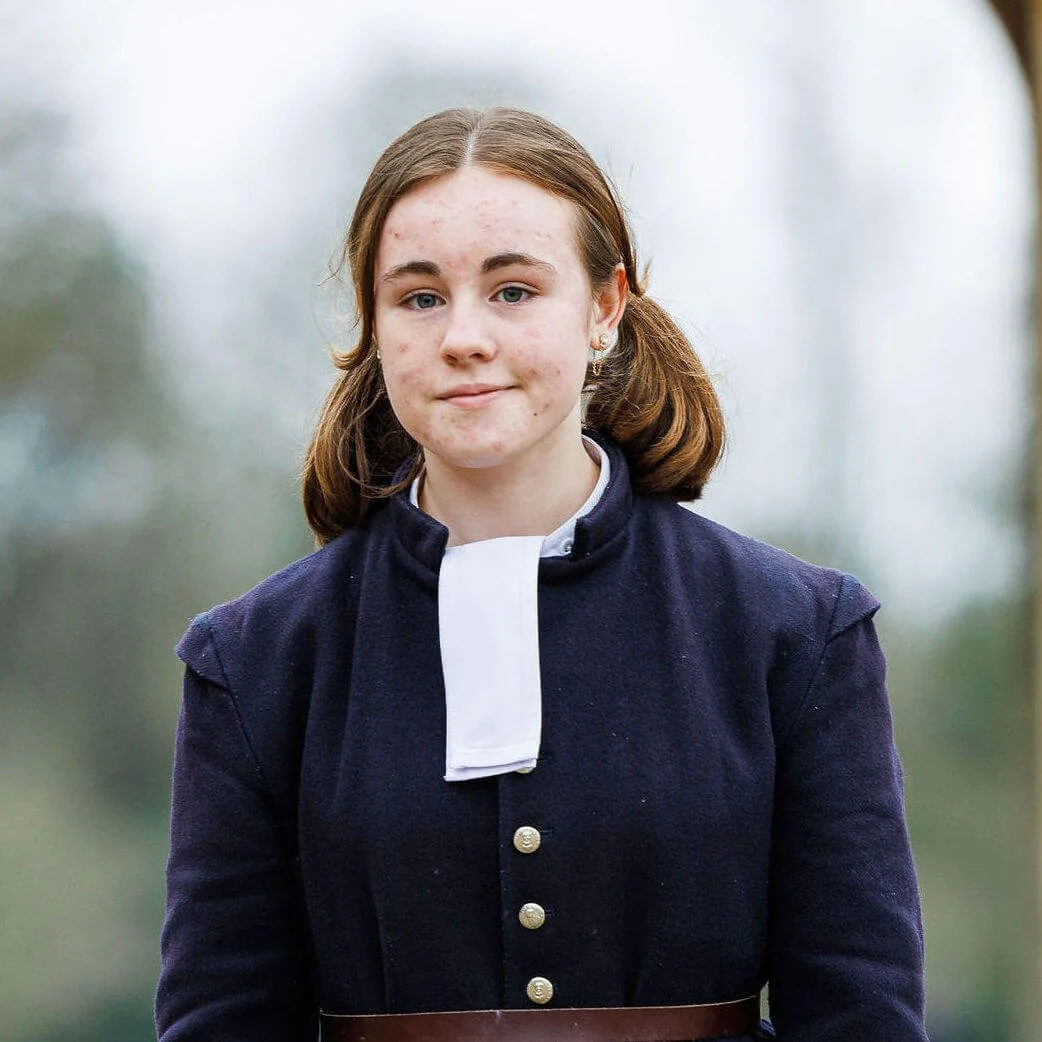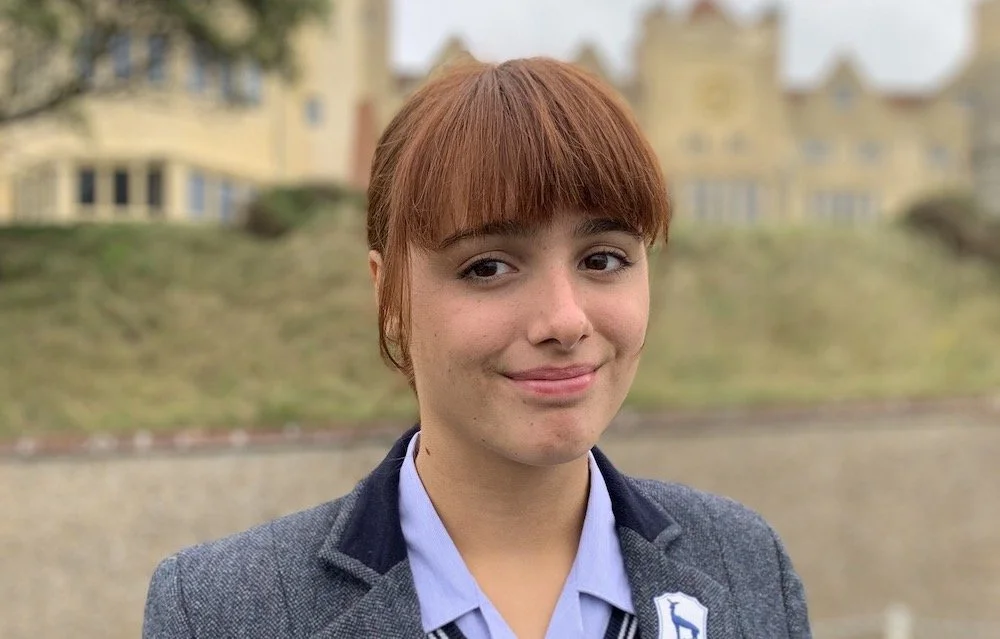Discover the English Curriculum at West Sussex independent school, Sompting Abbotts Preparatory School
Aims
The English Curriculum is aimed at encouraging our children to love this subject. Our programme of study targets the National Curriculum, but goes well beyond it, and for our oldest three year groups introduces accelerated learning.
“The more that you read, the more things you will know. The more that you learn, the more places you’ll go. ”
The aims of the English Department are:
- To use methods of delivery incorporating speaking and listening, reading and writing to empower our students to express themselves.
- To allow our children to enjoy speaking carefully and confidently, expressing ideas, considering audiences, opinions and persuasive views.
- To help students to achieve a confident and enjoyable reading of a wide selection of texts, to understand ideas in literature and to analyse and evaluate the nuances and techniques that authors use to achieve effect.
- To develop the habit of “Dropping Everything And Reading” (DEAR time) using our two libraries and wide selection of books.
- To help our students value the English literary canon and perform their reading of the written word with enthusiasm.
- To enable our students to improve their spelling, punctuation and grammar.
- To set high, yet differentiated standards which take account of the needs and abilities of each child, whilst providing additional support for students working on foundation skills and extension tasks for the most able.
- To use IT platforms educationally to give students the opportunity to compose and criticise using online media; to help students receive quick feedback using our GoogleDrive VLE.
Approach
The Sompting Abbotts English Department is responsible for the teaching of English Language and English Literature. In Years 1 to 4, English is delivered by the class teacher, but from Year 5 onwards it is taught by subject specialists. Children are taught in mixed ability classes throughout the school and are prepared for either Common Entrance or scholarships to senior schools.
Our approach is text-based and we incorporate both classic and modern writers into our units of work. By the time they leave in Year 8, all children will have encountered examples of some of the best prose and poetry written in the English language.
Children are taught to write accurately in a range of styles for different purposes. They are taught to express themselves clearly when speaking and to listen both carefully and critically when others are talking. We are lucky to have working with us Ms. Diana Howard, a peripatetic Speech and Drama specialist, who prepares children for Trinity Guildhall Speech and Drama examinations.
“All good books are alike in that they are truer than if they had really happened and after you are finished reading one you will feel that all that happened to you and afterwards it all belongs to you; the good and the bad, the ecstasy, the remorse and sorrow, the people and the places and how the weather was.”
Annual drama production
Sompting Abbotts stages a major drama production each year. It is often written by Headmaster and Head of English Mr Douch around the cast’s needs and strengths. Our aim is that every child from Years 5 to 8 has the opportunity to be part of the show in some capacity, be it crew or cast.
Children's written work is celebrated through frequently changed displays — both in classrooms and throughout the school. The school newsletter, The Sompting Scoop, was started by a talented Year 7 student and receives contributions from all students containing school news.
We make full use of the opportunities provided by our beautiful surroundings at Sompting Abbotts. Children are taught to write creatively from their own experience. Mr Buckingham teaches his Year 4 class to write about the plants they grow under his aegis in the on-site greenhouses in form time and PSHE; Mr Douch uses the Main Building to help Year 6 students get inside the mind of Victorian servants.
The libraries and library lessons are vital to the English Department at Sompting Abbotts. The school's policy is to review its library stock on a regular basis. New books - often recommended by the children or by our local independent retailer, The Steyning Bookshop, with whom we have hosted authors, explaining their work and signing copies of their books - are added frequently, allowing classics to perfectly share shelves with the latest offerings from Walliams, Ness, Wilson and Pullman.
A record is kept of every book a child tries and peer recommendations are encouraged. We have encouraged reading using “The Great Reading Race” where children in Main School “run races” where courses are constructed of challenges composed of books read.
What projects will my child cover?
Year 5
- Three class novels: Why the Whales Came (Morpurgo), Clockwork (Pullman) and Boy in the Girls’ Bathroom (Sachar)
- An introduction to a range of comprehension activities drama, and recipe-writing
- Creative writing
- The conventions of a number of non-fiction text types
Year 6
- Victorian project (Autumn term): The Ruby in the Smoke (Pullman), linking with History work, field trip to Preston Manor, comprehension and writing work
- Classic children’s novel (Spring Term): The Wind in the WIllows (Grahame), linking with Science work, visit to Arundel WWT, work in school grounds, expanding vocabulary.
- War novel (Summer Term): The Silver Sword (Serraillier), linking with History work, investigating children’s experience of war, working on other novels such as The Machine-Gunners (Westall) and Goodnight Mister Tom (Magorian).
- A range of modern poetry
- Preparation for 11+ examinations and the ISEB pre-test using up-to-date resources from the ISEB
Year 7
- Preparation for Common Entrance begins and students will study:
- A modern autobiography, typically Boy (Dahl) or My Family and Other Animals (Durrell)
- A classic novel and work on expanding vocabulary and understanding of historical and cultural factors (Treasure Island)
- Some key pre-20th century poetry
- A range of modern poetry
- Play script writing and comprehension work
Year 8
Preparation for Common Entrance continues and students will study:
- A 20th century novel (The Wonderful Story of Henry Sugar and six more (Dahl), including Lord of the Flies (Golding)
- A range of modern poetry
- Work from ISEB/Galore Park textbooks honing CE skills
- In addition to this, students in Year 8 also take play lead roles in the school’s drama production.
Post-CE, a challenging project involving several cross-curricular skills will be undertaken based on Ray Bradbury’s novel Fahrenheit 451.
Scholarship students will work on Dickens’ Christmas Books in the Autumn Term, progressing to Bram Stoker’s Dracula and a range of challenging texts.
Prizes are given to students who have produced excellent work at end-of-term Prize-giving. These include a cup and book token for Prose and a cup and book token for Poetry.

































What child doesn’t love to collect handfuls of glossy brown conkers? At Sompting Abbotts, they don't just fill their pockets — even socks become makeshift pouches. And so, at this time of the year, we send the children out into our school grounds to look for shiny conkers (not that they need any persuading).